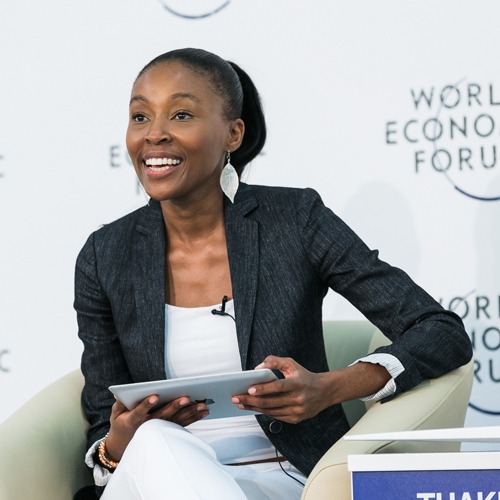
Vusi Thembekwayo, prominent global business speaker, author and venture capitalist; Judy Dlamini, businesswoman and executive chair of Mbekani Group and Mark Lamberti, founder of Massmart Holdings, one of the country’s biggest consumer goods distributors in Africa, are just some of the country’s leading business minds who have, over the years, been interviewed as part of Moneyweb‘s ‘Business Leader’ video series.
We have put together some our favourite insights from 2017’s series of interviews in time to help you brush up on your leadership skills for 2018.
Rapelang Rabana – ‘You Don’t Have To Be Good at Everything’
“I use mentors for specific areas around financial management for example, accounting was one of the things I hated a great deal at varsity so I brought in an accountant quite early into the business where previously I would’ve delayed it and would’ve done invoicing and managing everything myself. I realised that it takes a lot of my energy because it doesn’t come naturally, I’m not that good at it, and if I commit to paying a small stipend every month for someone to do that for me I’m completely free to do the things that actually add significant value to the business”
Rapelang Rabana is the ultimate power woman in tech, referred to as “Africa’s Marissa Mayers” by CNN. She is the founder and former CEO of online education platform Rekindle Learning.
Yusuf Randera-Rees – ‘Don’t Be Afraid To Think Big’
“I got into this form of leadership because I wanted to make large scale systemic impact and I don’t think there’s anything better or worse about systematic impact than impact on each individual’s life, it’s just a personal thing for me that if I was going to go into something with everything that I have for the rest of my life and make the sacrifices needed I wanted to do it in a way that could affect everybody and not just affect a few people”
Yusuf Randera-Rees is the co-founder and CEO of the Awethu Project, a social entrepreneurship programme in which businesses are not only measured by performance in profit and return, but aims to develop high-impact entrepreneurs that can grow SMEs, create jobs and act as role models in their communities.
Dudu Msomi – ‘Keep Your Strategy Simple’
“What we do with strategy, we don’t get into theories and models. [We ask] what business are you in, what are you good at, and if tomorrow you were not here, what will we miss about you. We get to very simple questions. Some clients do feel that that’s too simplistic, but it’s amazing how many of them can’t answer [that] very simple questions”
Dudu Msomi is the founder and CEO of advisory and consultancy firm Busara Leadership Partners, which works to develop leaders.
Brian Altriche – ‘Don’t Chase Money’
“You have to value the people around you, mentor them, learn from them, be inspired by those below you, because that is part of the journey and that’s what should be more important than money, because when you have those values, you start appreciating different aspects of being an entrepreneur and a business person, and the business becomes more successful. The only part that you have to fixate on with regards to the money side of business is balancing the books.”
Altriche is the founder of the successful food franchise, RocoMamas.
Bonang Mohale – ‘Create An Environment Where Your Employees Can Thrive’
“There is nothing more important than an environment and a culture that we create that says everybody is needed and wanted, where you can feel it, touch it, and where it is palpable, especially with women, because businesses today are very hostile to women as they are hostile to black people in general. That environment where like farming we know the farmer doesn’t spend 80% of his time massaging the individual seeds, but they spend 80% of their time preparing the soil, the environment. So the culture in an organisation says every one of our people irrespective of age, race, sexual orientation in the right environment can bare fruit in abundance, they can thrive. There is nothing that is more critical than to prepare that environment and that culture.”
Bonang Mohale is the CEO Of Business Leadership South Africa.
Ran Neu-Ner – ‘Challenge The Status Quo’
“We walked into an industry where people had been doing the same thing over and over for so many years, and we started asking all the questions around the sore points, because we came into the industry not having any preconceived perception of what happens in this industry and then in 2015 as a result we were given the industry’s leaders award. I think that just goes to show that if you come in with an attitude of disruption and not accepting the fact that things are this way because they’ve always been this way, and then having the courage and the resource to act on it, that’s powerful and we still do it today.”
Ran Neu-Ner is an investor and co-founder of The Creative Counsel, a marketing and activations company.
Esna Colyn – ‘Don’t Be Afraid To Rethink Who Is On Your Team’
“The reality is people are often different, and they often have their own different agendas and visions so the reality is during this journey you have to continuously reinvent yourself and re-position yourself and when you lose people around you, do not be afraid to look out for the next person that’s going to come along with you because during this journey we all learn from each other continuously and we all make a lot of mistakes, and it’s all about you re-positioning yourself and continuously being brave and courageous and continuously stepping out of your comfort zone.”
Colyn is the CEO of Imbalie Beauty Limited, a franchisor of three main salon brands, Placecol Skin Care Clinic, Dream Nails Beauty, and Perfect.
Kevin Hedderwick – ‘Communicate Strategy With Your Team If You Want It Executed’
“The important thing about strategy is that it’s no good if it’s just in the mind of the leadership, it’s got to be cascaded across the entire business to the lowest possible common denominator. And that’s all very good and well, but I think one of the things that a lot of businesses miss is that once you have the strategy outlined or articulated it needs to be to underpinned with integrated performance management. So you can have a clearly articulated strategy but if you do not share it it’s a problem and if you don’t underpin it with performance management it’s an even bigger problem.”
Kevin Hedderwick is the former COO and executive director of lifestyle investment company, Long4Life.






